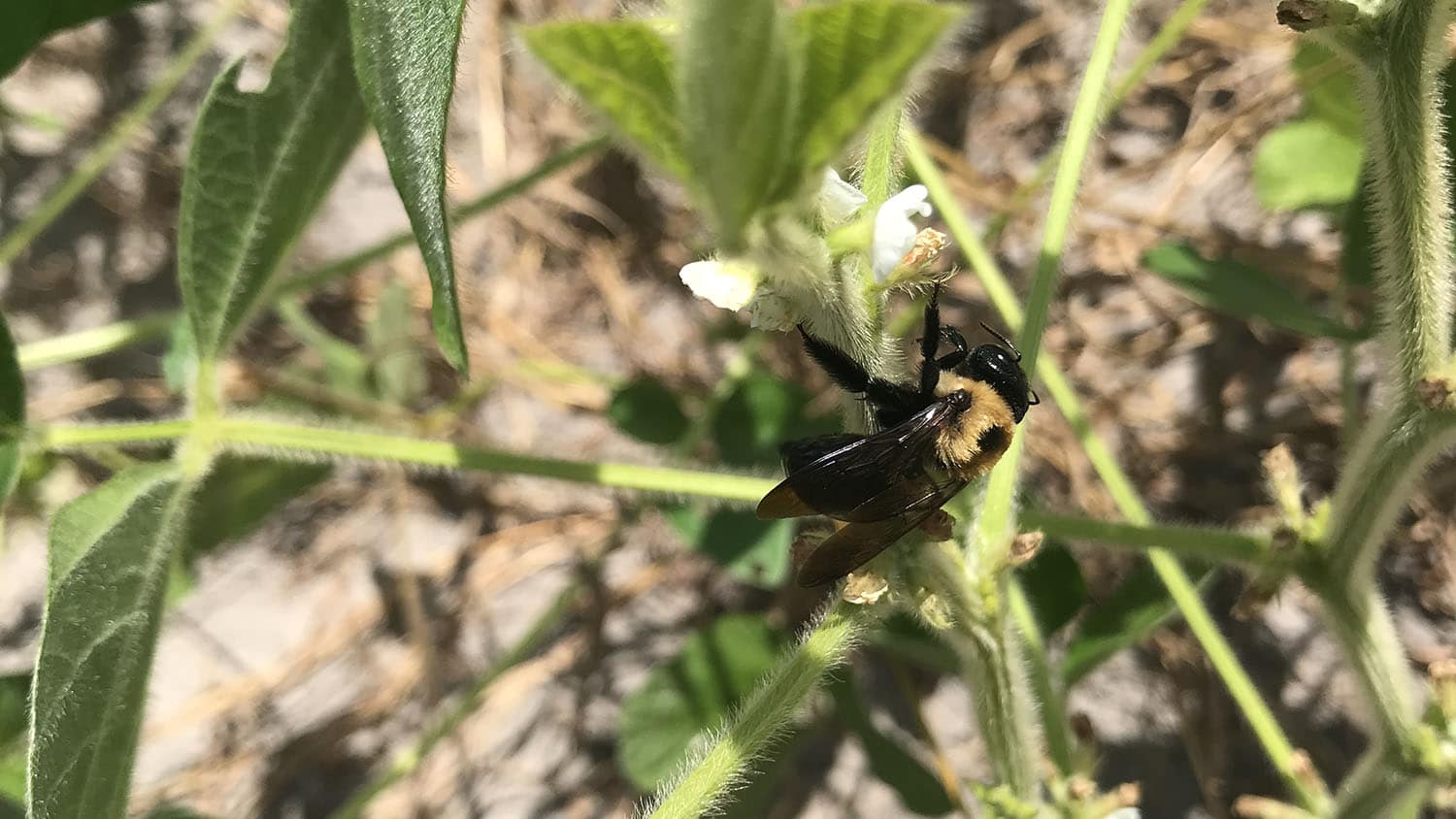Being near pollinator habitat boosts soybean size

Published: August 2, 2022
Category: The Non-GMO Blog, Research News
Researchers at North Carolina State University have found that soybean crops planted near pollinator habitat produce larger soybeans than soybean crops that are not planted near pollinator habitat.
“Even though soybeans are not thought of as being dependent on pollinators, we found that soybean plants are still attractive to bees,” says Hannah Levenson, a postdoctoral research scholar at NC State and corresponding author of a paper on the work. “And we found that the presence of pollinators was associated with larger soybeans.
“There’s been a lot of work on how planting pollinator habitat near crop fields can affect crops that are considered pollinator dependent, such as blueberries or strawberries,” Levenson says. “But there’s been relatively little work on crops that aren’t considered pollinator dependent. We wanted to know how having pollinator habitat near soybean fields would affect both bee species and crop yields for the soybeans.”
Our findings are very applicable for soybean growers across the Southeast,” Levenson says. “Other regions, such as the Midwest, have different cropping systems, so it’s not clear the extent to which these findings would apply there—that’s an interesting area for future study. This work also raises questions about the role that pollinators might play in affecting other crops that aren’t considered pollinator dependent. That’s another area that is worth exploring.”
The paper, “Evaluating the impact of increased pollinator habitat on bee visitation and yield metrics in soybean crops,” is published in the journal Agriculture, Ecosystems & Environment.
Source: North Carolina State University
To view source article, visit:
https://news.ncsu.edu/2022/02/pollinator-habitat-boosts-soybeans/
Organic & Non-GMO Insights August 2022








